- Home
- Keith R. A. DeCandido
Tales of the Dominion War Page 2
Tales of the Dominion War Read online
Page 2
It wasn’t like the Illarhi to hesitate so, Sejeel mused. Clearly, the fellow’s dream had affected him even more deeply than he had indicated.
Finally, Draz said, “This will sound strange, I know, but—last night, I dreamed I wasn’t the servant you see before you. I dreamed I was a man of power, a man of authority.” He looked back over his shoulder at Sejeel. “Your equal, in fact.”
How perfectly ridiculous, the Vorta thought, reveling in the absurdity of the idea. He couldn’t help laughing.
Draz winced.
“Forgive me,” said Sejeel, attempting to control himself. “It’s just that you caught me off guard. I mean…you, Draz? A figure of authority? My equal?”
His servant looked embarrassed. “Clearly not, Master. But in my dream, you see, I wasn’t Illarhi. I was from another planet, just like you and the Jem’Hadar.”
Sejeel smiled. This was getting good. “Then where was your ship, Draz? Hidden somewhere, perhaps? And what did you look like? An Illarhi…or something else?”
The servant’s brow puckered deeply as he tried to remember. “I don’t think my ship was here anymore, Master. It was called away on urgent business.”
Sejeel nodded. A pleasing answer. “And your appearance?”
“No different from what it is now,” said Draz. “In my dream, I looked the same.”
The Vorta sighed. He had hoped for more. “And how is that possible, I ask you, if you came here from another world? Neither I nor the Jem’Hadar look like the Illarhi. How would you?”
Draz thought for a moment. Then his eyes black eyes seemed to brighten. “I didn’t look like the Illarhi originally. I was altered to look like them.”
Sejeel had a feeling that this wasn’t part of his servant’s dream at all. It seemed to him that Draz was making the story up as he went along—no doubt, in an attempt to entertain his master.
Nonetheless, the Vorta played along with it.
“It’s true that people on other worlds can arrange to surgically alter their appearances,” he allowed. “But why, I wonder, would someone from a world where that was possible wish to become a denizen of this world?”
Again, Draz paused, as if trying to come up with a plausible answer. “I…was a scientist,” he said finally. “A scientist who wished to study the Illarhi without their noticing. That’s why I was altered to look like them—so I could mingle with them and examine them at close quarters.”
“How intriguing,” said the Vorta. Indeed, it was a clever answer, especially for a member of such a simple species. “And what happened to you in your dream? Did you carry out your scientific study?”
“I did,” Draz seemed to decide. “That is, until you and the Jem’Hadar appeared on Illarh. Then my study was interrupted.”
“Of course,” said Sejeel. “And was that the end of your dream? The arrival of your master and his Jem’Hadar?”
He hoped it wasn’t so, but he sensed that his servant’s ingenuity might be reaching its limits. Indeed, he was both surprised and pleased that it had gone this far.
“Not quite,” said Draz.
Sejeel leaned forward. “Really? There’s more.”
“Yes, Master. You see, in my dream, I had retained the technology I needed to send a message to my people—my true people, not the Illarhi.”
“Yes, yes, I understand which people you mean,” said Sejeel a little impatiently. “And did you send them a message with this technology you had?”
“I did. I contacted them and I told them what the Jem’Hadar were doing to Illarh.”
The Vorta felt his smile fading a little. This truly was a strange dream. “And what was it the Jem’Hadar were doing, if I may ask?”
“In my dream,” said the Illarhi, “the Jem’Hadar were setting up a depot here to serve a war effort. A rather large war effort, you understand.”
Sejeel grunted softly. How strange that his servant should say such a thing. Was it possible that Draz was more perceptive than the Vorta had given him credit for?
“Seeing this,” Draz continued, “I obtained operational data on the shield generator the Jem’Hadar set up. Then I sent it to my people. Not the Illarhi—”
“Your real people,” Sejeel said, more eager than ever for his servant to finish—if for a different reason now. “As I indicated before, I understand the distinction.”
“Yes, my real people,” Draz echoed, as if he needed to do so in order to get himself back on track. “It was my hope that with such information, my people could pierce the Jem’Hadar’s shield. Then I studied the Jem’Hadar’s duty schedules, and recommended the best times for my people to attack.”
The Vorta felt a chill climbing the rungs of his spine. “How absurd,” he said, “how positively absurd.”
Suddenly, he had an urge to get in touch with Baraj’aran. Taking out his communications device, he opened a link.
But there was no response from the Jem’Hadar First. Only a series of loud, guttural sounds that sounded eerily like barked commands.
Sejeel’s mouth was remarkably dry. He eyed Draz, wondering what in the name of the Founders was going on.
“Excuse me,” he told his servant, and got up out of his chair. Then he advanced to the window where Draz was standing, meaning to fling aside the window covering and see what was going on outside for himself.
But Draz blocked his way. “Your pardon,” he said to Sejeel, “but it would please me immensely if you would allow me to finish.”
“Finish…” the Vorta echoed numbly.
“Finish my dream,” the Illarhi explained.
Sejeel’s fists clenched. “What is happening, Draz? What is this about?”
His voice sounded shrill in his ears. It was the voice of someone who was suddenly very afraid.
“Finally,” said Draz, “my people did attack. And the first thing they did was disable the vessel the Jem’Hadar had left in orbit.”
Sejeel’s mouth felt dry. As dry as dust.
“That was why the Jem’Hadar on the surface lost contact with the vessel. It was because it had been attacked. In my dream, however, the Vorta in charge of the depot didn’t respond to that news. He was too eager to hear—”
“What is going on?” Sejeel shrieked, surprising himself with the violence of his outburst.
“The Jem’Hadar are obliged to follow the instructions of their Vorta,” said Draz. “But he was too busy to give them any. So when my people—not the Illarhi, but my real people—went after the depot, and the shield generator was of no help…”
“Who are you?” the Vorta demanded.
Draz looked hurt. “I am who I’ve always been, Master. Your humble servant.”
Sejeel tilted his head and looked up at the Illarhi. “Then…it was just a dream? Truly a dream?”
He desperately wanted to believe that. Still, despite everything.
Draz shrugged. “Sometimes,” he said archly, “it’s difficult to say where reality ends, and dreams begin.”
Then he removed something from his own pocket—a Starfleet insignia, of all things. Tapping it, he said, “Ben Zoma to Picard. What’s our situation, Jean-Luc?”
“A successful one,” said a voice on the other end of the comlink—a human voice, unless Sejeel was mistaken. “We’ve disabled the shield generator and all but secured the depot. But if I were you, Gilaad, I would remain indoors for the moment—until we are quite certain all the Jem’Hadar have been accounted for.”
The Vorta hung his head, the magnitude of his blunder only now filling him like the breakfast foods he’d been consuming. How could he have so thoroughly betrayed the trust the Founders had placed in him? How?
“Don’t go out there and try to be a hero,” the comm voice said.
Draz—or, rather, Gilaad Ben Zoma—smiled at Sejeel. “Don’t worry, Jean-Luc, I wouldn’t dream of it.”
Night of the Vulture
Greg Cox
War correspondence: In the Star Trek episode “Day of the Dove,” t
he so-called Beta XII-A entity menaced a Starfleet and Klingon crew before they joined forces to drive it off. The Star Trek: The Next Generation trilogy The Q Continuum established that the entity was an old and powerful being. In the Star Trek: Deep Space Nine episode “Call to Arms,” the area surrounding the entrance to the wormhole was mined by the DS9 crew shortly before they abandoned the station to the Dominion, thus preventing the latter from summoning reinforcements.
“Night of the Vulture” takes place about the same time as the DS9 episode “Favor the Bold.”
Greg Cox
Greg Cox is the New York Times bestselling author of The Eugenics Wars Volumes 1-2, The Q Continuum trilogy, Assignment: Eternity, The Black Shore, and other Star Trek novels, including the upcoming To Reign in Hell: The Lost Years of Khan Noonien Singh. Recent short fiction can be found in Star Trek: The Amazing Stories, Star Trek: Enterprise Logs, and Tales of the Slayer Volume 2. He lives in Oxford, Pennsylvania, and is shocked to realize that this is the first time he has ever written a Cardassian, Vorta, or Jem’Hadar…
The Starfleet database referred to it as the Beta XII-A entity, named for the planet where the Federation, in the person of James T. Kirk and his crew, first encountered it. The database further described it as “extremely dangerous.” The entity called itself (*), and most of the time it was simply hungry.
But not now.
The galaxy was at war, flooding the cosmos with waves of unleashed hate and anger. (*) had not supped so well in ages.
It spun through the vacuum of space, a shimmering sphere of incandescent crimson energy. Yes, it thought with satisfaction, savoring the violent emotions radiating outward from the vast inter-planetary conflict. This is as it should be.
For nearly a century, ever since the day two warring species had joined forces to laugh (*) out into the void, the entity had been careful to avoid both Klingon and Federation space. (*) feared exposure above all else, for it preyed most easily on the unsuspecting, and those two loathsome nations, along with their allies, had learned far too much about (*)’s essential nature to risk trying to exploit them once more. Instead it had been compelled to skulk like a craven assassin through the most desolate backwaters of the quadrant, taking only such ships as were unlikely to be missed. Smugglers’ vessels, mostly, and the occasional exploratory vehicles from less developed worlds.
Such lean pickings had left (*) merely a flicker of its former self—until the war had begun. Now, with the ambient aggression of the entire quadrant raised to unprecedented new heights, (*) felt its powers and perceptions expanding at a geometric rate. Not since Cheron, fifty millennia ago, had its hunger been so abundantly rewarded.
Now there was a banquet, (*) recalled with pleasure. Racial bigotry had provided the foundation for a truly delicious repast, one that had endured until scarcely a single survivor remained. This new war promised to be even more invigorating. I have waited generations for a feast such as this….
The more (*) fed, the more powerful it became. Tendrils of intangible thought reached out from its glowing red core, searching out the freshest springs of unbridled wrath and hatred amidst the overall carnage of the war. Then, to its dismay, (*) became aware of a situation, less than a parsec away, that threatened to bring the exquisite strife to a swift and premature end.
Unless (*) acted at once….
“Ready to beam up passenger.”
The name on the freighter captain’s papers was Jeremy Paul Gleason, but that was a fiction. Zonek Karle, Cardassian sleeper agent, sat at the helm of his ship, awaiting word from the planet below. On the viewscreen ahead of him, Earth rotated like an enormous taspar egg. It looked deceptively placid for all the grief and inconvenience its people had inflicted on the Cardassian Union over the decades.
“Copy that, Solanco,” a voice announced from the planet’s surface. “You’re good to go.”
Karle nodded at the comm. “Thanks,” he said with a flawless Federation accent. Security had tightened on (and above) Earth ever since the Cardassian Union, along with its new Dominion allies, had reclaimed Terok Nor several months ago, but Karle had not anticipated any problems at this stage of his mission. As far as Starfleet was concerned, the Solanco was simply picking up an ordinary civilian passenger.
He activated the transporter controls. A familiar hum filled the bridge of the freighter, and Karle spun his seat around to watch as a humanoid materialized at the rear of the bridge.
Like Karle himself, the new arrival appeared revoltingly human. She was the very image of a middle-aged Terran female, not particularly attractive, wearing a nondescript olive-colored suit. A compact travel bag about the size of a standard medikit materialized along with her. Her fleshy pink features bore a notably severe expression.
“Welcome aboard.”
The woman did not deign to reply to Karle’s greeting. Her pale gray eyes dubiously inspected the smallish interior of the bridge as if expecting to find it beneath her standards. Her gaze swept over the sturdy duranium walls and mass-produced Federation control consoles. Although auxiliary workstations ran along both the port and starboard sides of the bridge, Karle could control all of the ship’s major functions, from navigation to sensors, from the crescent-shaped helm station facing the viewscreen. Between the glow of the screen and the overhead lighting cove, the woman had more than enough illumination with which to scrutinize her new surroundings.
“Adequate,” she pronounced finally. Karle repressed a stab of irritation at the woman’s attitude. “Are we quite unobserved?” she asked.
Karle nodded. “The bulkheads are shielded against even the most invasive scans.”
His answer appeared to satisfy the woman, who underwent a striking metamorphosis. Her exposed face and hands glistened wetly as human flesh was supplanted by a gelatinous golden slush that flowed and melted into a new configuration before solidifying once more. The woman’s face now bore the smooth and masklike features her kind routinely presented to humanoid lifeforms. Karle felt a pang of jealousy. His own surgical transformation had not been nearly so painlessly accomplished.
“You may depart now, Captain,” the Changeling instructed him. “I am anxious to be under way.”
Karle waited until they were safely clear of Earth’s solar system before admitting the rest of his passengers to the bridge. Confident that the Solanco’s departure had not roused Starfleet’s suspicions, he went to warp and then pressed a concealed button on the helm’s control panel.
A door slid open at the rear of the bridge, revealing a hidden passenger compartment between the bridge and the cargo bay. A Vorta emerged from the compartment, accompanied by a combat unit of scowling Jem’Hadar warriors.
Typically, the Vorta, whose name was Methras, ignored Karle and immediately began fawning on the Changeling. “Founder,” he gushed, “I cannot tell you how honored I am to be in your sublime presence. It is my unworthy privilege to assist you in this, your momentous journey back to Dominion space.”
The Changeling accepted Methras’s devotion as her due. Still clad in the same olive suit, she occupied a seat at the bridge’s starboard workstation like a monarch astride a throne. The glowering Jem’Hadar soldiers took up defensive positions about the bridge, standing guard over the Changeling with their rifles poised and ready.
The Founder’s entourage left the Solanco’s bridge feeling considerably more cramped than usual. Karle had, in fact, objected to ferrying such a large party to Earth just to escort the Founder home, but had been overruled by his superiors. Heaven forbid that the Changeling spy should travel back to Dominion space without her bodyguards and Vorta minion.
“How soon, Captain, until we reach Terok Nor?” the Changeling demanded. She rested a protective hand on the bag in her lap. “It is vital that I deliver these codes to our military forces as soon as possible.”
Her peremptory tone irked Karle, but he held his tongue. Their joint mission was far too important to waste time objecting to the Founder’s lack of manners. r />
Via her shape-changing abilities, the Changeling had obtained a piece of vital Starfleet information: the command codes to the deep-space mines currently preventing the Dominion from sending reinforcements from the Gamma Quadrant through the Bajoran wormhole. With these codes, the Dominion would be able to deactivate the mines and send a flood of fresh ships and soldiers through the wormhole, bringing the war to a quick and brutal end.
Unfortunately, as Karle was all too aware, they couldn’t risk transmitting this information through Federation space for fear that Starfleet might discover that the codes have been stolen. Thus, they had to deliver the codes in person, which was why the Solanco was currently warping toward Terok Nor.
The mission is all that matters, Karle reminded himself. That and winning the war. “Approximately five days,” he informed the Changeling.
“Is that the best you can do?” she replied, clearly displeased by his answer. She cast a disparaging glance aft, as though examining the freighter’s all-too-inadequate engines. “Was this the only vessel available to you?”
Karle had captained the Solanco for over ten years, and he bristled at the Changeling’s impertinent queries. “It is, if you want to make it out of the Federation unnoticed.” He could not resist adding a touch of sarcasm. “Perhaps you would have preferred a Galor-class attack cruiser?”
The Changeling frowned, alarming Methras. Ever the diplomat, the Vorta inserted himself between the captain and the Founder. “I am certain that the captain means no disrespect,” he burbled. His ribbed ears flushed in embarrassment, in contrast to the sickly pallor of his face. “We are all agreed, surely, that stealth is of the utmost importance?”
“Very well,” the Changeling conceded. “Five days will suffice, if that is what we absolutely must make do with.”
“The Founder is most wise,” Methras said, genuflecting in the Changeling’s direction. “Your patience is gratefully appreciated.”

 Alien
Alien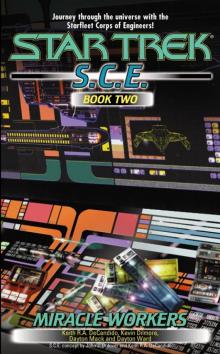 Miracle Workers
Miracle Workers Articles of the Federation
Articles of the Federation Supernatural Heart of the Dragon
Supernatural Heart of the Dragon War Stories: Book Two
War Stories: Book Two The Zoo Job
The Zoo Job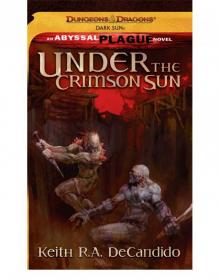 Under the Crimson Sun
Under the Crimson Sun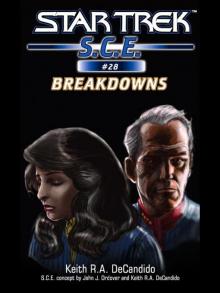 Breakdowns
Breakdowns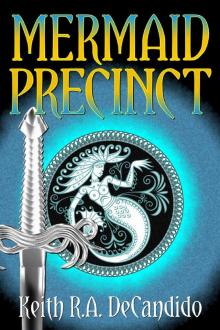 Mermaid Precinct (ARC)
Mermaid Precinct (ARC) Supernatural 1 - Nevermore
Supernatural 1 - Nevermore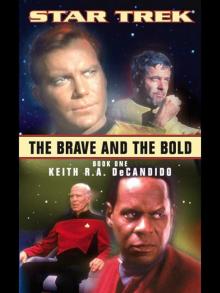 STAR TREK - The Brave and the Bold Book One
STAR TREK - The Brave and the Bold Book One Four Walls
Four Walls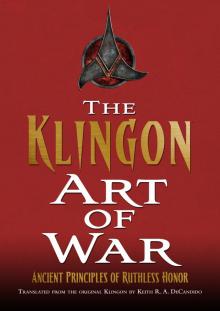 The Klingon Art of War
The Klingon Art of War Blackout
Blackout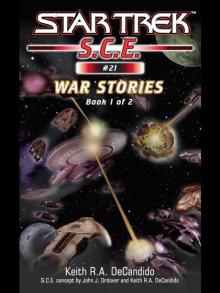 War Stories: Book One
War Stories: Book One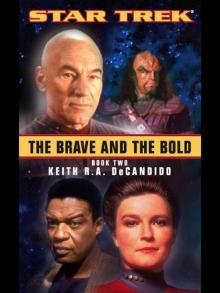 The Brave and the Bold Book Two
The Brave and the Bold Book Two Honor Bound
Honor Bound Sleepy Hollow: Children of the Revolution
Sleepy Hollow: Children of the Revolution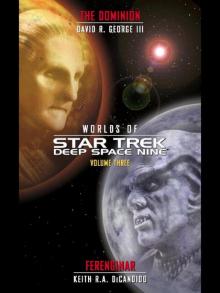 Worlds of Star Trek Deep Space Nine® Volume Three
Worlds of Star Trek Deep Space Nine® Volume Three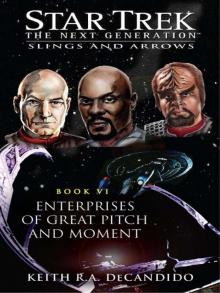 Star Trek: TNG: Enterprises of Great Pitch and Moment
Star Trek: TNG: Enterprises of Great Pitch and Moment Genesis
Genesis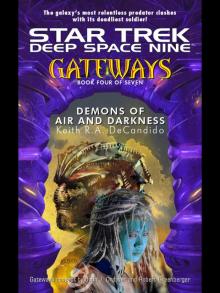 Demons of Air and Darkness
Demons of Air and Darkness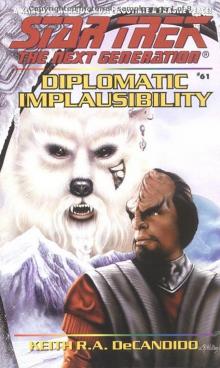 Star Trek - TNG - 61 - Diplomatic Implausibility
Star Trek - TNG - 61 - Diplomatic Implausibility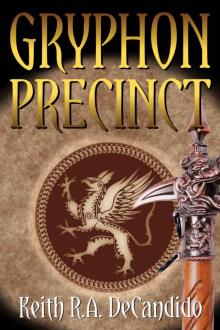 Gryphon Precinct (Dragon Precinct)
Gryphon Precinct (Dragon Precinct)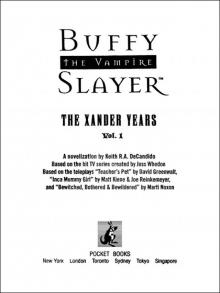 THE XANDER YEARS, Vol. 1
THE XANDER YEARS, Vol. 1 Nevermore
Nevermore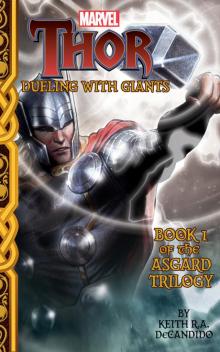 Thor
Thor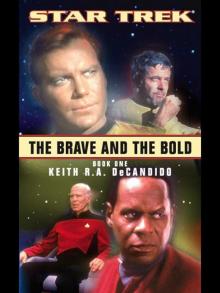 The Brave And The Bold Book One
The Brave And The Bold Book One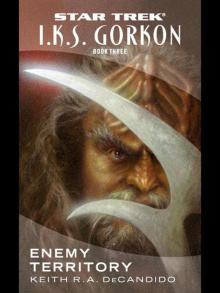 I.K.S. Gorkon Book Three
I.K.S. Gorkon Book Three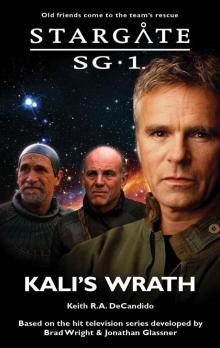 STARGATE SG-1: Kali's Wrath (SG1-28)
STARGATE SG-1: Kali's Wrath (SG1-28) Bone Key
Bone Key Guilt in Innocece
Guilt in Innocece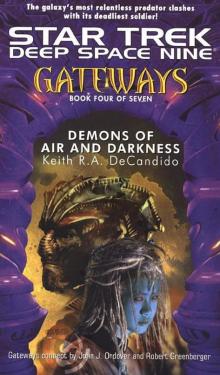 Star Trek - DS9 Relaunch 04 - Gateways - 4 of 7 - Demons Of Air And Darkness
Star Trek - DS9 Relaunch 04 - Gateways - 4 of 7 - Demons Of Air And Darkness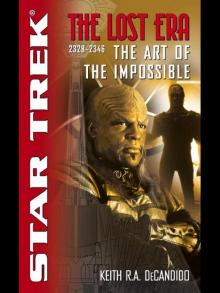 The Art of the Impossible
The Art of the Impossible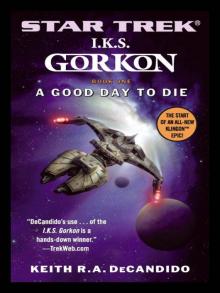 I.K.S. Gorkon Book One: A Good Day to Die
I.K.S. Gorkon Book One: A Good Day to Die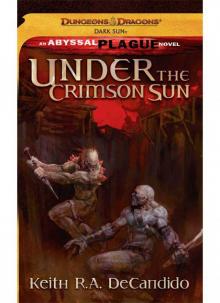 Under the Crimson Sun (the abyssal plague)
Under the Crimson Sun (the abyssal plague)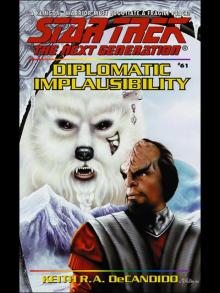 DIPLOMATIC IMPLAUSIBILITY
DIPLOMATIC IMPLAUSIBILITY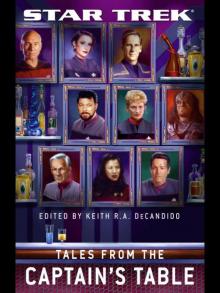 Tales from the Captain's Table
Tales from the Captain's Table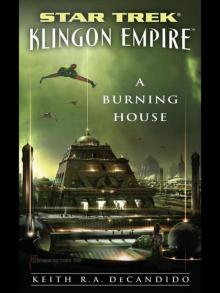 A Burning House
A Burning House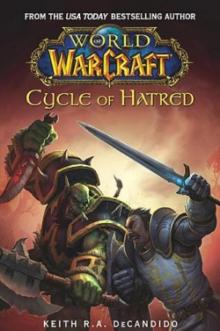 Cycle of Hatred (world of warcraft)
Cycle of Hatred (world of warcraft)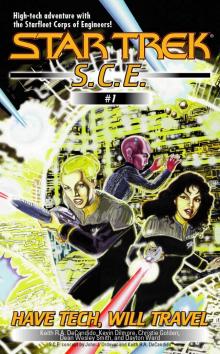 Have Tech, Will Travel
Have Tech, Will Travel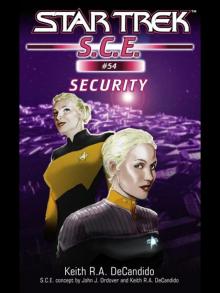 Security
Security